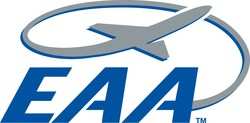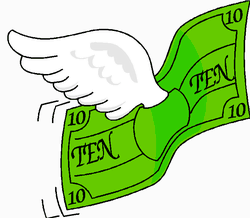Tue, Feb 06, 2007
 What the Experimental Aircraft
Association (EAA) and other general aviation groups had been
predicting for months became fact today, as user fees were a
centerpiece of the Fiscal Year 2008 budget request from the U.S.
Department of Transportation and the Federal Aviation
Administration.
What the Experimental Aircraft
Association (EAA) and other general aviation groups had been
predicting for months became fact today, as user fees were a
centerpiece of the Fiscal Year 2008 budget request from the U.S.
Department of Transportation and the Federal Aviation
Administration.
EAA immediately reiterated its strong opposition to any user
fees, as the budget proposal includes the framework to establish a
user-fee program for various aviation services; a nearly four-fold
increase in the fuel tax paid by general aviation operators (avgas
and autogas); and a series of fees for access to the nation's
busiest airports. It would also transfer control of agency funding
and oversight away from Congress and dramatically reduce public
control of how the FAA exercises its discretionary spending.
"DOT and FAA have attempted to distract from the user fee issue in
their public statements by saying that revenue from general
aviation would continue to be collected via a fuel tax, but they
failed to acknowledge that the fuel tax would be increased
dramatically and a whole series of user fees would be implemented
for FAA services that today do not carry a charge," said Doug
Macnair, EAA Vice-President of Government Relations.
 "EAA remains categorically opposed
to user fees. Such a system will not enhance safety, it will not
improve services, and it will add barriers for thousands of
recreational aviators while being a costly burden to the federal
government."
"EAA remains categorically opposed
to user fees. Such a system will not enhance safety, it will not
improve services, and it will add barriers for thousands of
recreational aviators while being a costly burden to the federal
government."
The budget proposal calls for increased and or the establishment
of fees for aircraft certification and registration, as well as
appointment and designation of designees such as those used to
certificate amateur-built aircraft and light sport aircraft, and
airman medical certificates.
While EAA has strong indications of what the Bush Administration
is proposing, the details of the new user fee and tax hike
proposals will become publicly available when the FAA
reauthorization bill is submitted to Congress in mid-February. EAA
and the other general aviation groups will continue to fight this
effort to burden individual aircraft owners with this new
expense.
"It is an ironic twist that while DOT Secretary (Mary) Peters
said the budget proposal as a whole will 'help get our freedom
back' in the nation's transportation infrastructure, it severely
threatens the freedom of our country's general aviation community,"
Macnair said.
More News
A Puff Of Smoke Came Out From The Top Of The Engine Cowling Followed By A Total Loss Of Engine Power On May 9, 2025, about 1020 mountain daylight time, an experimental amateur-buil>[...]
From 2022 (YouTube Edition): Jenny, I’ve Got Your Number... Among the magnificent antique aircraft on display at EAA’s AirVenture 2022 was a 1918 Curtiss Jenny painstak>[...]
Very High Frequency (VHF) The frequency band between 30 and 300 MHz. Portions of this band, 108 to 118 MHz, are used for certain NAVAIDs; 118 to 136 MHz are used for civil air/grou>[...]
“From approximately November 2021 through January 2022, Britton-Harr, acting on behalf of AeroVanti, entered into lease-purchase agreements for five Piaggio-manufactured airc>[...]
From 2008 (YouTube Edition): US Fish and Wildlife Service Chooses The Kodiak To Monitor Waterfowl Populations Waterfowl all over North America may soon have to get used to a new ab>[...]
 NTSB Prelim: Lee Aviation LLC JA30 SuperStol
NTSB Prelim: Lee Aviation LLC JA30 SuperStol Classic Aero-TV: Curtiss Jenny Build Wows AirVenture Crowds
Classic Aero-TV: Curtiss Jenny Build Wows AirVenture Crowds ANN's Daily Aero-Term (05.30.25): Very High Frequency (VHF)
ANN's Daily Aero-Term (05.30.25): Very High Frequency (VHF) Aero-News: Quote of the Day (05.30.25)
Aero-News: Quote of the Day (05.30.25) Classic Aero-TV: Quest Kodiak Enhances Migration Monitoring Programs
Classic Aero-TV: Quest Kodiak Enhances Migration Monitoring Programs




